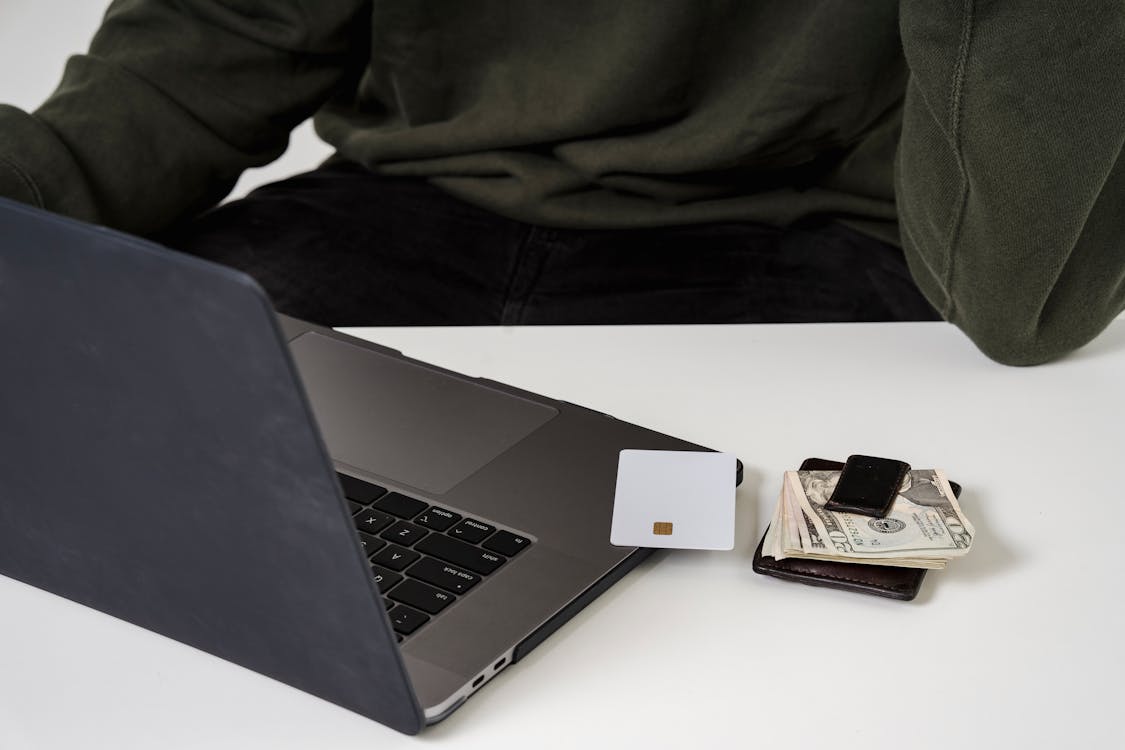Are you tired of needlessly paying large interest costs on your credit cards? If that’s what you go through, know that you are not the only one. This article will provide five tips on how to avoid credit card interest charges.
For many people, credit card payments are a serious issue and receive high-interest rates. Nevertheless, you can avoid these charges just by having a thoughtful plan and better managing your charges.
What Are Credit Card Interest Charges?
These are the fees credit card companies impose on outstanding balances when you don’t pay your full amount by the due date.
The interest is calculated based on the annual percentage rate (APR) set by the issuer. If you don’t pay the full balance, interest accrues daily on the remaining amount, increasing your total debt.
How To Avoid Credit Card Interest Charges
- Pay Your alance in Full Every Month
- Use a 0% APR credit card
- Avoid Cash Advances
- Monitor Your Expenses
- Make a Balance Transfer
1. Pay Your Balance in Full Every Month
The best way to avoid credit card interest charges is to pay your balance in full every month. One just needs to pay up the total amount that one owes before the due date, so no further interest charges can be levied on the remaining balances or amounts.
This involves being diligent with your budget and ensuring that you have enough cash to cover all your expenditures every month.
In a situation where you have a $1000 credit card balance with an 18% interest rate, you could save $180 in interest fees if you paid off the full amount each month.
This will also prevent you from paying fees that are lower than you can reasonably afford and could instead be used for other more important purposes.
2. Use a 0% APR Credit Card
If you’re going to make a big purchase that you don’t want to end up paying an interest rate on top of, using a 0% APR credit card means you can buy now instead of paying later.
Among the alternatives you might consider is the Chase Freedom Unlimited card, which includes a 0% APR introductory period for the first 15 months on purchases and balance transfers.
This is an advantage because you can buy something and pay for it in installments without incurring the penalty of interest charges.
A no-interest rate promotional period can help you to pay less in the future and, therefore, not be caught up in such a cycle. All you need to do is make sure that the payments are cleared up on time and the balance is paid off before the introductory period ends.
3. Avoid Cash Advances
Credit cards are very convenient for shopping, but if you’re not careful, you can be charged high-interest rates. One way to do that is to skip taking out cash advances.
It is not recommended to take out credit card cash advances since they typically come with a very high interest rate. Cash advances shouldn’t be substituted with credits. As an alternative to cash, you could consider using a debit card.
Let’s take an example where you need immediate cash, and instead of using your credit card to get a cash advance.
You can use a service like Venmo or Zelle to transfer money from your bank account to a friend or family member who then provides you with the amount you need. You will, in the end, be able to save money by avoiding the costly interest fees associated with cash advances.
4. Monitor Your Expenses
You can also keep yourself from paying needless, excessive interest fees by doing this. By using a card like this, you may stop worrying about how much you spend and avoid paying high interest rates.
You may prevent overspending by monitoring your credit card statement or downloading budgeting apps, which will notify you where your money is going.
In addition, you can track your finances by setting up alerts on your credit account to notify you when a payment is due or when you are getting close to your credit limit.
5. Make a Balance Transfer
Consider switching to a credit card with a reduced interest rate if you have a high-interest credit card debt.
Look for a balance transfer offer that has a promotional duration of at least one month and an APR of 0% or less. However, pay close attention to the terms since APRs could be as high as 3 to 5% of the deposited funds.
Check whether the transfer charge is more than the interest savings. Also, consider how long the promotional period is going to last and make sure you can pay off the balance before the usual APR starts.
Tips On How To Reduce Card Interest Charges
a) Negotiate with your credit card issuer
Never be afraid to get in touch with your credit card provider and request a reduced interest rate. Some lenders are willing to consider your application, particularly if your credit history is strong.
b) Transfer balances to a card with a lower interest rate
Just may be, you should transfer your balances to a credit card with a lower interest rate, preferably one that will give you a promotional 0% APR period. However, make sure you pay out the balance before the promotion period comes to an end to avoid high-interest rates.
c) Make extra payments
Reduce the amount of interest you should be paying by paying off your credit card debt. Remember that you can pay off the principal quickly if you pay extra every month instead of the minimal amount.
d) Consolidate debt with a personal loan
Consolidate your high-interest credit card balances into a single personal loan at a lower interest rate. The earlier you pay off your debts, the quicker they will be reduced and the lower the interest charges.
e) Improve your credit score
Go for timely payments, and frequently inspect your credit report for errors to improve your credit score. You can get lower interest rates on credit cards and other credit accounts if you have a higher credit score.
FAQs
When should I pay my credit card bill to avoid interest?
To avoid interest charges on your credit card, clear the entire balance well in advance of the due date. An effective strategy, known as the 15/3 rule, recommends splitting your payment. This technique helps you pay on time, thereby limiting the chances of late payments and reducing interest accrued.
What is the best strategy to avoid paying interest on your credit cards?
The best way to avoid paying interest on your credit cards is to make sure you clear the balance and pay on time at the end of each month.
You can eliminate paying interest charges simply by preventing the accrual of your debt. Also, you will be in a position to avoid having your debt increase since interest is compounded.
Are there alternative ways to pay off balances?
Yes, there are many alternative methods to do that. The snowball method is one approach in which you pay off the smallest debts first, then move on to the larger ones little by little.
Another strategy is the avalanche way, which means prioritizing the debts with the highest interest rates first. And finally, consolidation loans or balance transfers to lower-interest accounts.
Conclusion
Though it is necessary to learn different tactics to avoid such credit card interest charges, e.g., paying off balances in full and on time and using introductory APR offers, it is equally important to cultivate the habit of deliberate spending.
Regularly monitoring the expenditures, creating a budget, and taking careful consideration are proven tips on how to avoid credit card interest charges.

